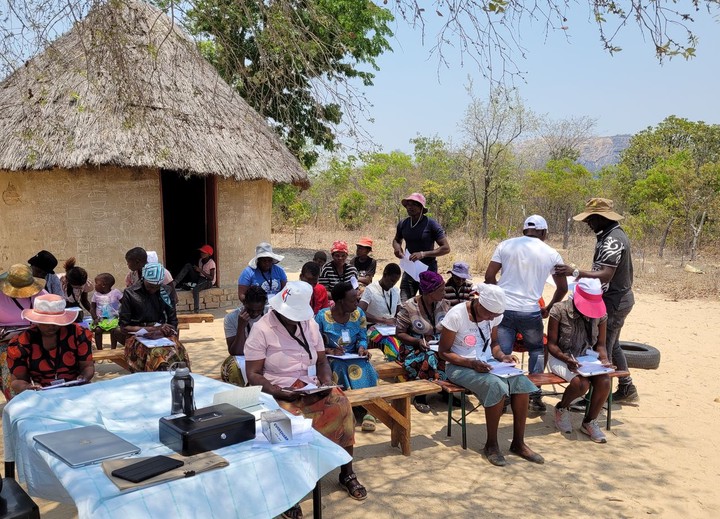Social Capital & Agricultural Technology Development: SoCapZ
 A session in the field
A session in the fieldIn recent decades, agricultural development projects have focused on adapting smallholder farming practices to new global and climate challenges and help farmers to become more resilient. A particular interesting family of practices regrouped under the concept of Sustainable Intensification (SI) seeks to increase the productivity, sustainability and resilience of farming systems. Most projects use participatory tools to foster cooperation between farmers, researchers and other stakeholders involved in the co-development of these practices.
The central hypothesis of the SoCapZ project is that there are important two-ways interactions between the social capital of farmers and farm communities, and the agricultural development projects. On the one hand, projects may increase the social capital of farmers, on the other hand communities with higher social capital may see more rapid adaptations of practices promoted by the projects. To better understand these interactions, the SoCapZ project proposes to develop a methodology to measure the structural and cognitive components of social capital at farm and community scales. SoCapZ will also use recently methodologies to calculate indicators of resilience of the same farmers.
At the end of this one-year project, SoCapZ will provide a fully-tested methodology to measure social capital at farm and community levels based on a combination of surveys and lab-in-the-field incentivized games. We will be able to analyse the relationship between resilience/productivity and current social capital at the beginning of the RAIZ project. As a long-term impact of the SoCapZ project, we intend to use that methodology again after three years with the same communities. This will be permitted by the close interaction of the SoCapZ project with the RAIZ project. This re-use of the SoCapZ methodology will allow us to characterize the role of social capital in the theory of changes of an agricultural development project.
This project was funded through Labex AGRO 2011-LABX-002, project n°2101-044 (under I-Site Muse framework) coordinated by Agropolis Fondation.